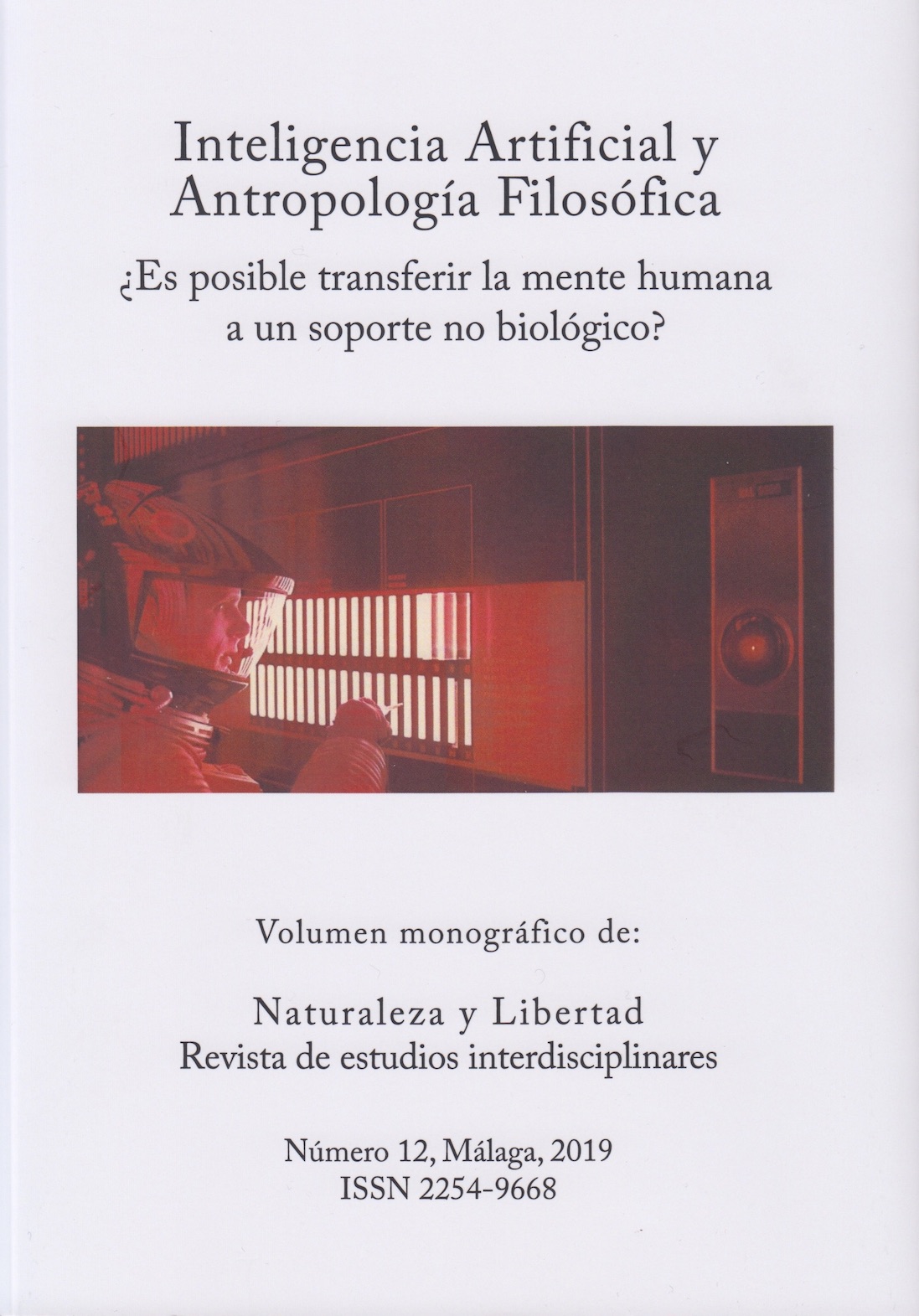Hacia la inutilidad: una crítica a la dependencia digital
DOI:
https://doi.org/10.24310/NATyLIB.2019.v0i12.6266Keywords:
atención, autonomía epistémica, (in)dependencia epistémica, integración cognitiva, inutilidad, mejora cognitiva, memoria, pensamiento profundo, procesamiento de la información, rutas neuronales, tecnologías intelectuales,Abstract
Hoy en día todos contamos con un inseparable compañero en nuestros bolsillos, el teléfono “inteligente”, una ventana a un mundo sin límites, Internet. Esto ha propiciado que muchas de nuestras actividades se hayan subcontratado en diversos aparatos electrónicos y en la misma Red, lo que me lleva a preguntarme si nos estamos volviendo excesivamente dependientes de dichas tecnologías. Estudios recientes demuestran que, mediante el uso excesivo de Internet, estamos privilegiando cada vez más las rutas neuronales encargadas de un procesamiento rápido y superficial de la información en detrimento de aquellas dedicadas al pensamiento profundo y el razonamiento. Debido a ello, puede surgir la pregunta de si nos estamos volviendo inútiles a la hora de ejecutar dicho pensamiento y por ende de filosofar al modo que hemos venido haciendo hasta ahora.Downloads
Metrics
References
N. Carr, Superficiales: ¿Qué está haciendo internet con nuestras mentes?, Madrid, Taurus, 2011.
N. Carr, “Hacia el ‘homo technologicus’”, en: El País, 2014, https://elpais.com/sociedad/2014/09/19/actualidad/1411146383_037635.html. Accedido el 13 de febrero de 2018.
J. A. Carter, “Intellectual autonomy, epistemic dependence and cognitive enhancement”, en: Synthese, 2017: 1-25.
N. Doidge, El cerebro se cambia a sí mismo, Madrid, Aguilar, 2008.
A. Goldman, “Discrimination and perceptual knowledge”, en: Journal of Philosophy, 1976, 73(20): 771-791.
R. Heersmink, (a) “Extended mind and cognitive enhancement: Moral aspects of cognitive artifacts”, en: Phenomenology and the Cognitive Sciences, 2015: 17-32.
R. Heersmink, (b) “Dimensions of integration in embedded and extended cognitive systems”, en: Phenomenology and the Cognitive Sciences, 2015, 14(3): 577-598.
M. Heidegger, “La pregunta por la técnica”, en: Conferencias y artículos, Traducción de Eustaquio Barjau, Barcelona, Serbal, 1994.
M. P. Lynch, The Internet of us: Knowing more and understanding less in the age of big data, London, W.W. Norton, 2016.
I. Persson, y J. Savulescu, Unfit for the future: The need for moral enhancement. Oxford: OUP, Oxford, 2012.
P. Sloterdijk, Normas para el parque humano: Una respuesta a la carta sobre el humanismo de Heidegger, traducción de Teresa Rocha Barco, Madrid, Siruela, 2000.
P. Suderman, “Your Brain Is an Index”, en: American Scene, 2009 www.theamericnscene.com/2009/05/11/your-braiin-is-an-index . Accedido 9 febrero 2018
J. Sutton, “Exograms and interdisciplinarity: History, the extended mind, and the civilizing process”, 2010, en: R. Menary. (Ed.), The extended mind, Cambridge: MIT Press, 2013: 189-225.
D. Tapscott, Grown Up Digital, Nueva York, McGraw-Hill, 2009.
C, Thompson, “Your Outboard Brain”, en: The New York Times, 2007 Accedido 10 febrero 2018.
J. Z. Young, Doubt and certainty in science: A Biologist’s on the Brain, Londres, Oxford University Press, 1951
Downloads
Published
How to Cite
Issue
Section
License
Those authors who have publications with this journal, accept the following terms:
1. Copyright and licensing information are clearly described on the journal’s web site: all content published in Naturaleza y Libertad is open acces without limit, and are subject to the Attribution-NonCommercial-ShareAlike 4.0 International (CC BY-NC-SA 4.0) license. The full text of which can be consulted at https://creativecommons.org/licenses/by-nc-sa/4.0/
2. It is the responsibility of the authors to obtain the necessary permissions for the images that are subject to copyright. The authors whose contributions are accepted for publication in this journal will retain the non-exclusive right to use their contributions for academic, research and educational purposes, including self-archiving or deposit in open access repositories of any kind. The electronic edition of this magazine is edited by the Editorial de la University of Malaga (UmaEditorial), being necessary to cite the origin in any partial or total reproduction.
3. This journal allows and encourages authors to publish papers on their personal websites or in institutional repositories, both before and after their publication in this journal, as long as they provide bibliographic information that accredits, if applicable, your posting on it.
4. In no case will anonymous papers be published.





18.png)













